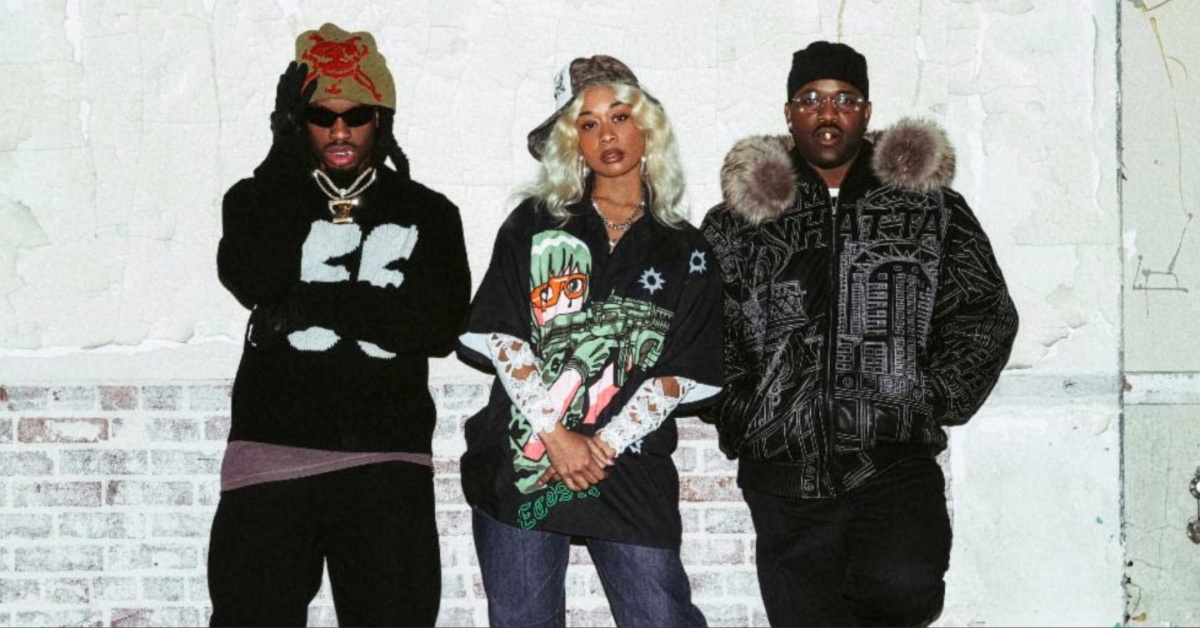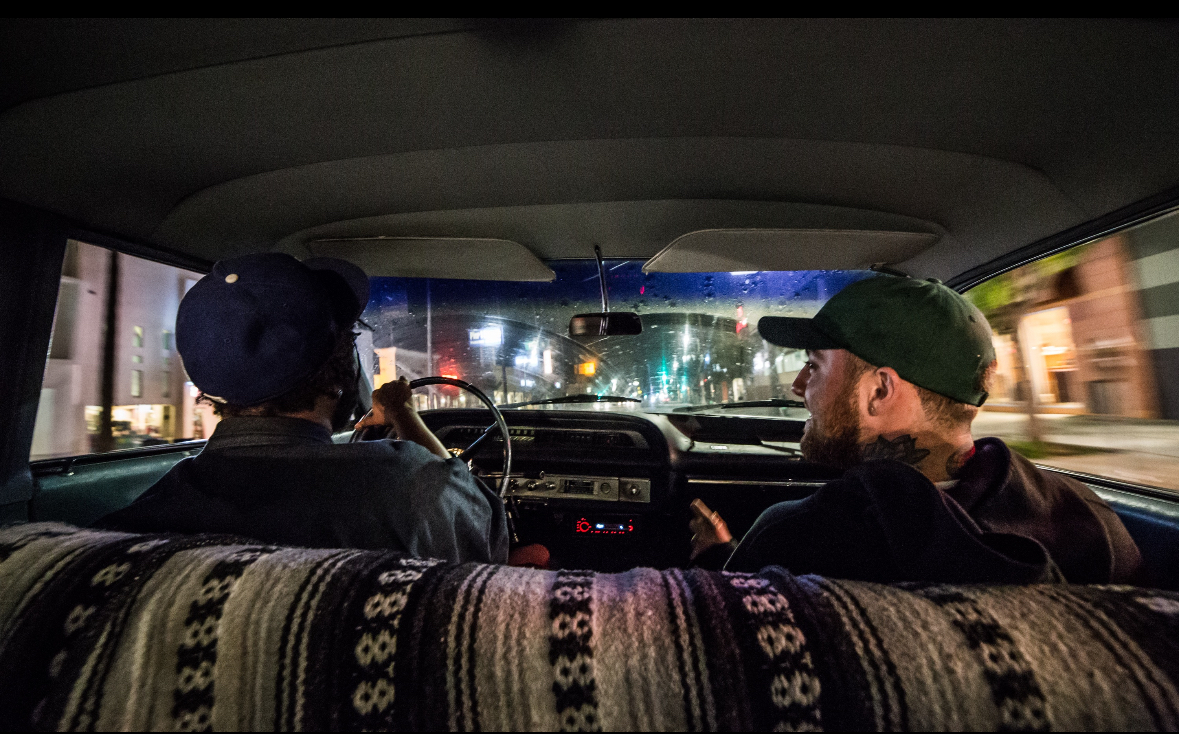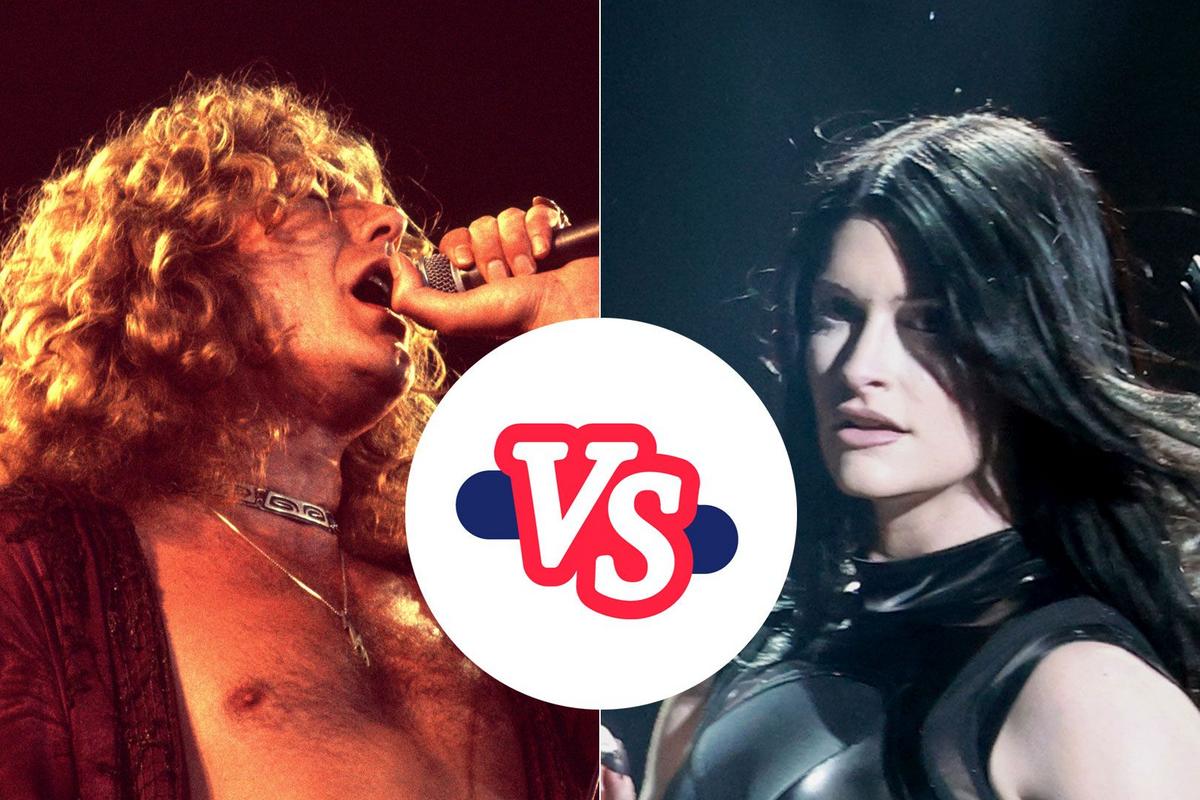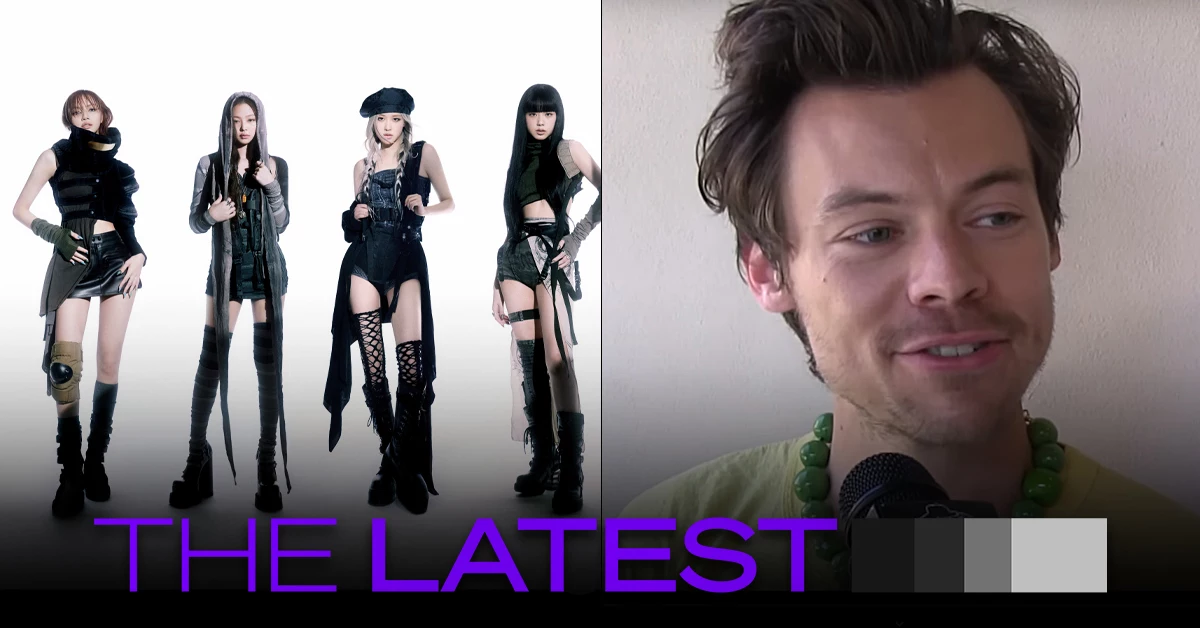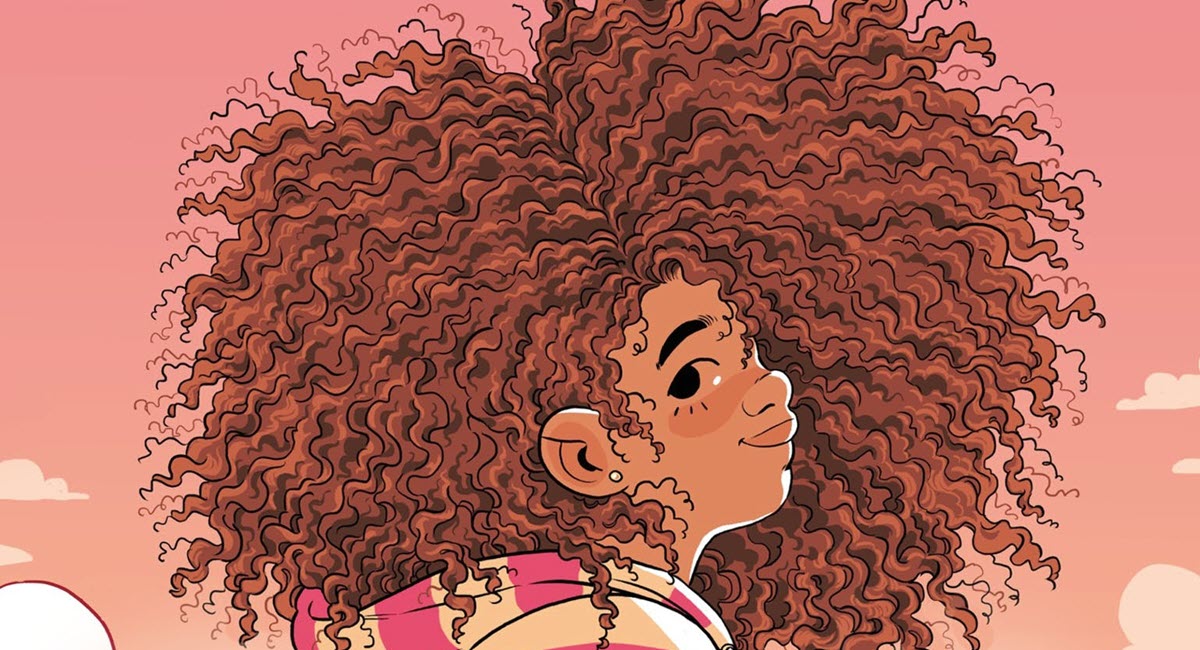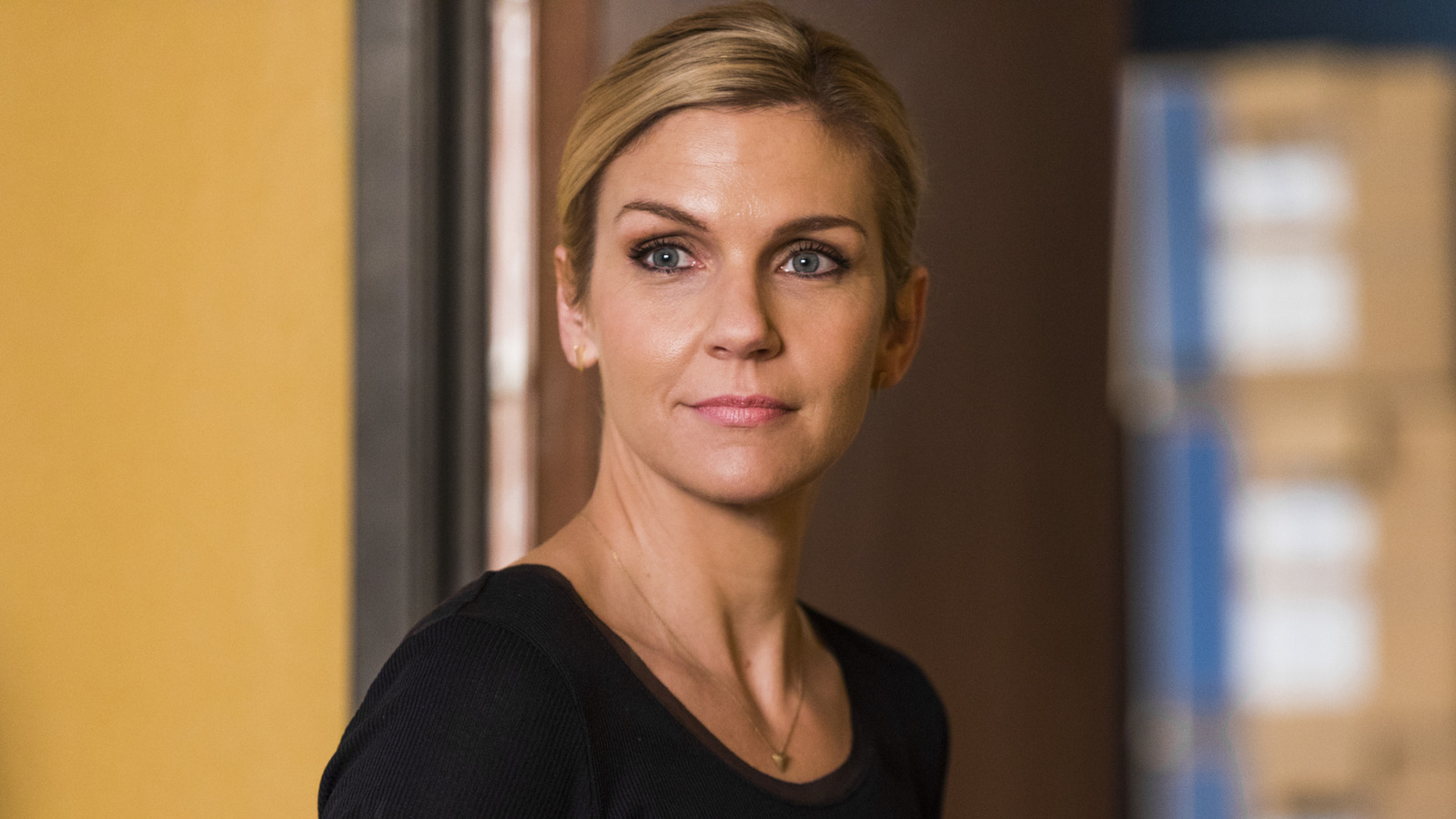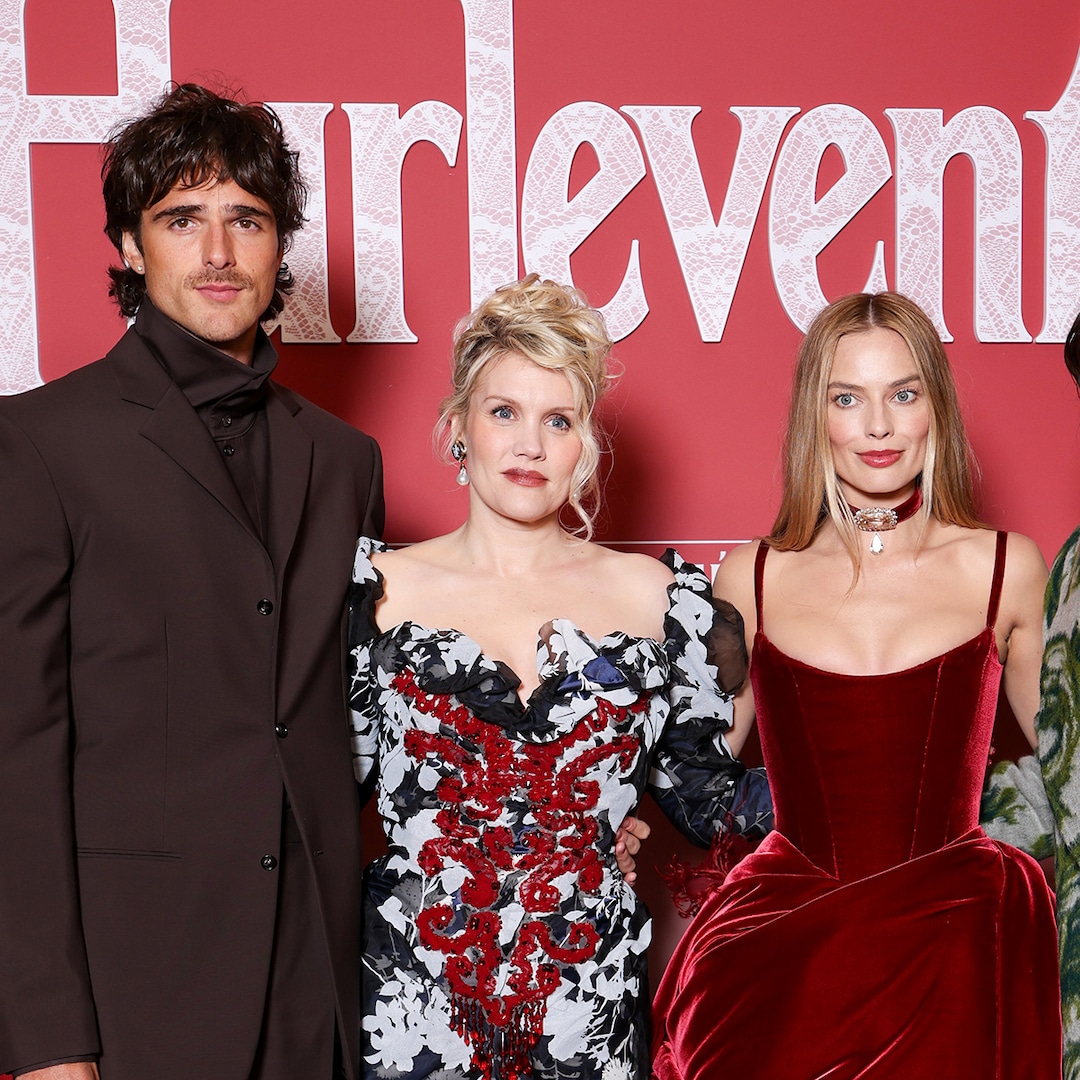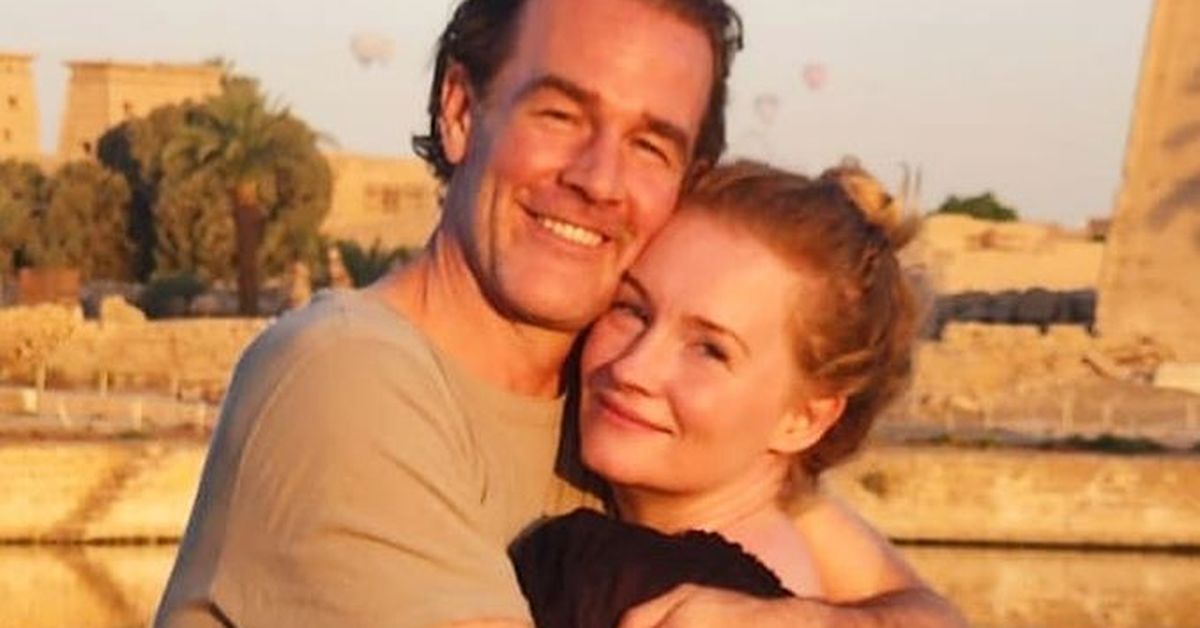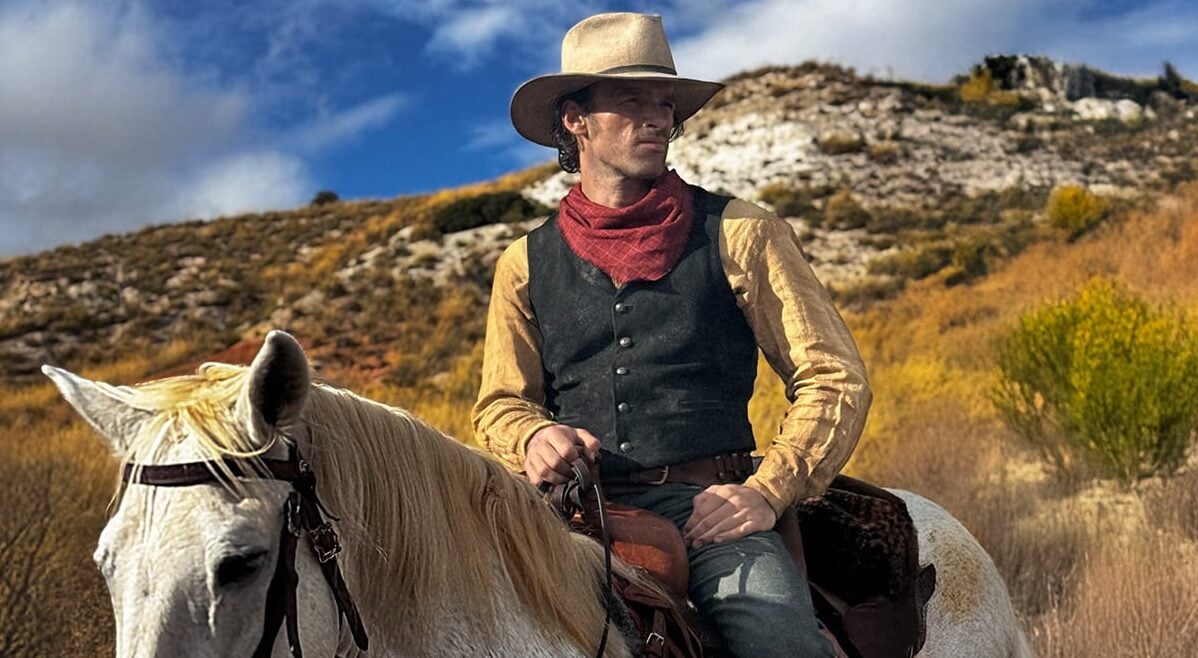“I thought I was going to be a political satirist and activist, changing the world in a really crazy, cringe way,” comedian Stephanie D’Agostini — who goes by Stef Dag — tells me on a Saturday morning in New York, “but pretty much immediately, I thought, ‘That’s not for me. I’m just going to be funny.’” We’re chatting in the wake of an attempt at bleached eyebrows, which Dag chronicled on her social media platforms. Her presence in that arena, spearheaded by her TikTok show Hot & Single, introduces Dag’s spirited, flirty, and sardonic voice. “My mom called me. She was like, ‘Are you OK? That is not something normal people do,’” she smirks, petting her pale eyebrows, “She’s Croatian, and she was freaking out. She was like, ‘You don’t seem well.’ And I said, ‘No, mom. This is what people do in New York.’”
It’s this style of sentiment that Dag draws on often, which she describes to me as “critique from the inside.” As a former Conde Nast video director, NYU graduate, not to mention Bushwick resident — she certainly knows, and resides in, the absurdity of the city, especially the scene downtown — she breaks during the interview a few times to throw casual shade at Dimes Square culture, gripe about the downfall of the shitpost left, and unpack what it means when ironic style goes too far. That being said, Dag’s TikTok show is endearing, and while holding a mirror to the city’s infamously difficult — if not laughable — dating scene, she’s snarky but effervescent, full of wink-wink sarcasm but avoiding mockery of the people, one-time guest Dua Lipa aside, that she pulls off a park bench or subway platform to interview.
Read more: How punk rock taught stand-up comedian Neil Rubenstein to pay it forward
Dag’s stand-up is another story. Shock value, the rising comic had realized, as she veered from the political arena, was the ultimate goal. And thus, she entered the ether of dark comedy. Nothing is off limits for Dag — though everything comes through an unexpectedly personal lens. The more people she upsets, the more fuel she seems to have. She texts me late Monday night after the interview, to let me know, excitedly, about “candid girlfriend,” her controversial viral cameo on Kareem Rahma’s SubwayTakes: “I somehow managed to piss off alt-right incels and liberal gen z…which I think is beautiful and unifying <3” She also pissed off Emrata, and a slew of others. It’s a difficult line to toe, but Dag seems to be doing the dance right, swaying between sarcasm-doused and brutally direct. It’s certainly not for everyone’s palate. And Dag embraces that.
Oh! The Horror, Dag’s latest show, is coming to New York on July 19, at the Chelsea Music Hall. Read our conversation and enter the darkness with Dag below — and grab a seat for the live act.


Before we talk about your show, I just want to know more about you. Where did you come from, where did you grow up, and how did you end up doing comedy?
I’m from Jersey. Super trashy, rural town, opioid city. My mom is Croatian. My dad’s like a Tony Soprano — if Tony Soprano was a simp. Growing up in New Jersey, I did all the theater stuff — then for college, I went to NYU Gallatin School [of Individualized Study], which is the school where you make up your own major. I made one up called “Awareness and Troublemaking” — that’s literally what it says on my degree. For the immigrant mom, that was a nightmare. She was like, “Please study science” — and I was like, “No, I’m going to do awareness and troublemaking!” What does it even mean? That is a great question. During my time at Gallatin, I changed my major five times, and got dropped by three advisors who said, “You don’t know what you’re doing” — which was true, but it’s also crazy to give an 18-year-old free range to make up their own major. At the end of my junior year, I studied abroad in Argentina. At our end-of-the-year party on study abroad, another student dared me to go up and roast the program. That roast was the first time I did stand-up. It was really mean… And I was like, “I love this.”
When you got up and did the roast of the program and you said you loved it, what about it did you love? Was it more internal or the audience response?
I liked the shock value, and that’s stuck with me through my style now. I like saying things that no one expects me to say. I was the class clown in the program. I was always fucking around, but when I went up and I individually called out everyone in the program, everyone’s jaws dropped. I definitely went there, a hundred percent — and then I went 10% more. And I liked that reaction. I’ve always been a big fan of roast shows, and I just always think that if comedy doesn’t ruffle a few feathers, to me it’s a little bit boring, personally. Maybe not intentionally, but that’s why now my comedy is so dark — there’s something about everyone being like, “There’s no way this horrible thing could be funny…”
What came next, after that moment?
After the program, I came back my senior year ready to jump into comedy full time. That’s when I changed my major to Awareness and Troublemaking, which was essentially political satire. That was the gist of it. My thesis was Jon Stewart and the Trump election. I thought I was going to be a political satirist and activist, changing the world in a really crazy, cringe way. But pretty much immediately, I thought, “That’s not for me. I’m just going to be funny.” That’s when I started doing my own stand-up, and now I’ve been doing it for nine years. The first six years, nothing happened and nobody cared. It was a zero-sum game. It was only in my seventh year, two years ago, that anything started happening.


I can imagine with political satire, there’s a ceiling. During that election, even in the blue chip art world, things reached a point of like, “OK, let’s please stop making art about Trump. There’s enough now.”
The other thing about it is the liberals would be making political satire about Republicans, and vice versa. If Republicans are making art, I don’t know. But none of it is actually that interesting, because everyone in that circle already agrees. The interesting thing is to criticize your own party and make fun of the whole thing. That’s what bothers me about culture now. If you’re a liberal making fun of the right, we all are on board with that — someone needs to come up and roast themselves. If you’re a woman, you should roast feminism a little bit, critique it from the inside.
Did you watch stand-up comedy growing up?
More in high school. I loved stand-up, and I used to transcribe specials in my journal to learn jokes and stuff.
Who was your favorite?
My favorite comedians growing up were Amy Schumer and Jerry Seinfeld. Jerry Seinfeld is No. 1 — I fucking watch Seinfeld every day. Now I think my favorite comedians are more like… Doug Stanhope is really good, and Maria Bamford is fun as well. Anthony Jeselnik is great. These are all dark people.
You said that you love roasts, in your opinion which is the best roast?
The Roast of Bob Saget. Fucking mean and so funny. Holy shit. I just think roasts are a beautiful, perfect art form. At its core, it’s perfect joke writing. It’s mean, but it is just an exercise in how many jokes you can write about this one thing with no boundaries on what you can say, which is rare now — to approach things that way.
Oh yeah. Has anyone roasted you before in a formal way?
I always tell my friends that my dream is to do a roast of myself, and they’re like, “You don’t actually want that. You would cry.” But I still do throw these roast shows that are the roast of New York, the roast of LA, the roast of Austin. It’ll be 20 comedians that come up and do three minutes of roast jokes about the city, which has been a fun exercise. It’s completely different than roasting a person, obviously. It’s a little bit more of a buttoned-up version of a roast. But I would love to do a roast. It’s not that big in New York, or maybe I’m not really tapped into the roast comedy community. But it’s big in Austin, which makes sense. Joe Rogan world.
When you said that in seven years things changed for you, first of all, what was happening during those seven years? Were you working while doing stand-up?
Right out of college, I worked at Conde Nast as a video director for GQ and Vogue. That was a true 9-to-5 corporate-held job, and then I’d do comedy at night. In my opinion, in your first six years, you should be bad at comedy. I don’t think anyone should be good when they first start. You should just be throwing shit at the wall. I was doing two open mics a night or multiple shows a week or whatever, and then I started throwing my own show. But when I say nothing was happening, I mean the industry didn’t care if I lived or died. Nobody cared. My social media wasn’t going viral in any sort of way, which was less of a thing then, but still some people were really popping on the internet, and I wasn’t. Then COVID happened, and I pretty much didn’t do comedy for a year-and-a-half. I have really bad stage fright, so when I don’t do it for a while, I get anxious thinking of doing stand-up. So after that year-and-a-half, I thought I’d lost my confidence. But I slowly started getting back into it and getting a little bit noticed. I remember Nikki Glaser DMed once, and I was like, “Oh, my God, I’m going to be famous now.” But no, nothing happened. Shit like that. But in that last year, I made Hot & Single, my TikTok show, and that exploded pretty quickly. Everything snowballed. My clips started going viral. I started being able to sell tickets. So, it’s really only been in the last year-and-a-half that I’ve had representation and anyone gave a shit about me.
In your stand-up now, when you’re talking about “dark” things — Epstein Island, 9/11 — what do you think makes your take different from another comedian who’s also working with more taboo subjects?
That’s a good question. I think anything anyone says about something is going to be different than anybody else’s perspective because any opinion you have is going to be fully painted, whether you realize it or not, by your own experiences. Also, it’s not like I go and try to find dark subjects and write jokes about them. I actually try to write about normal things, and the darkness just comes out, even when I don’t even want it to. The other day I gave myself a writing exercise. I was like, “Let me write about something so observational and mundane, something Jerry Seinfeld would write about.” I started writing about veterans boarding planes first. So basic, and I ended up writing 15 minutes on Khalid Sheikh Mohammed, one of the guys who organized 9/11, who dyed his beard cowboy copper in prison, which is the shade I just dyed my hair, and realized this connection between us. I just can’t help it. It’s intentional in any way.
That one sets you apart for sure. What’s in your TikTok algorithm right now?
It’s all Taylor Swift and Matty Healy.
There’s your shock value.
Yes, the biggest shock about me is that I like Taylor Swift lore.


We all do, somewhere deep down. Is your show a lot of new material?
Yes and no, because my hour is really everything I got. So there are jokes in there that I started seven years ago. There are some jokes in there that I’m still working on right now. I think with this hour, I do want to test out some new stuff. I’m planning to release a special in the next six months, hopefully. So I’m really trying to lock down thematically what that hour is and what I should take out and what I should replace. It’ll be a little bit loose. Especially in the middle of trying a joke, I’ll ask the audience what they think, maybe pivot to another joke if they don’t like it. I’ve been having fun doing that a little bit. It makes the audience feel a part of it. But it is my first time doing my hour in New York. I’ve only done it on the road.
Do you feel like New York is a different audience? Are there more discerning or something?
Every audience is different. I have found that doing comedy for your friends and family is the hardest. Anytime I’ve done a show where my friends and family are there, I am like, “Why aren’t you guys laughing more?” My brother will sit in the front row and be dead serious, just not laugh. But I have my biggest audience in New York, so a lot of people will have seen me before, and some of my friends in the city have been watching me do stand-up for seven years — so they’ll have to hear my abortion joke one more time.
What else is coming up?
Planning on doing a special. I’ll keep touring in the fall around the country. I’m going to the Festival Fringe in Scotland in August with my friend. Also, I have an unscripted show that I’ve been working on and developing that’s being pitched to different networks, which is what I’m the most excited about. I don’t know how much I can say about it, but it is a Nathan for You-type show. I’ve been working on it for years, and I think it is more indicative of my voice and my perspective than any of the other stuff that I have been doing online.
Are you as confident in doing things that are less planned out?
Yeah, I think the thing I’m best at is interacting with real people. That’s what I like about Hot & Single — I’m just talking to people, and I can make them feel comfortable in a way that they’ll say something that I know is going to be taken wrong or easy to poke fun at, but it doesn’t feel mean-spirited. I don’t know how to describe this, and I don’t want to make it like a boy vs. girl thing, but I do think there’s a specific type of comedy that is gotcha comedy, like a bait-and-switch comedy. When you look at who has done it professionally, it’s like Nathan Fielder and Sacha Baron Cohen. With Nathan for You, it’s my favorite show of all time, but sometimes you’re like, “Oh, my God, those people look so stupid, and it’s mean, for better or for worse.” It is mean, and he’s great at that, and it’s because he’s slightly autistic, and he can get away with that. I can’t get away with that. I’m not an autistic middle-aged guy, and I would just be a huge bitch if I were doing it to people.
There’s a different perception.
It’s more like, “Well, how can I be sweet and get people to be comfortable?” Then they’ll say something, and it feels a little bit more silly but still gets that same cringe, awkward moment scenario. There is something about that that feels a little more inherently feminine to me because I think we care more about putting people in an uncomfortable situation. So the only other woman I know that has done that really well is this comedian Jena Friedman, who is incredible, but she’ll do random interviews with people and make them look really stupid in a brilliant way, but it has been dominated by men mostly.

